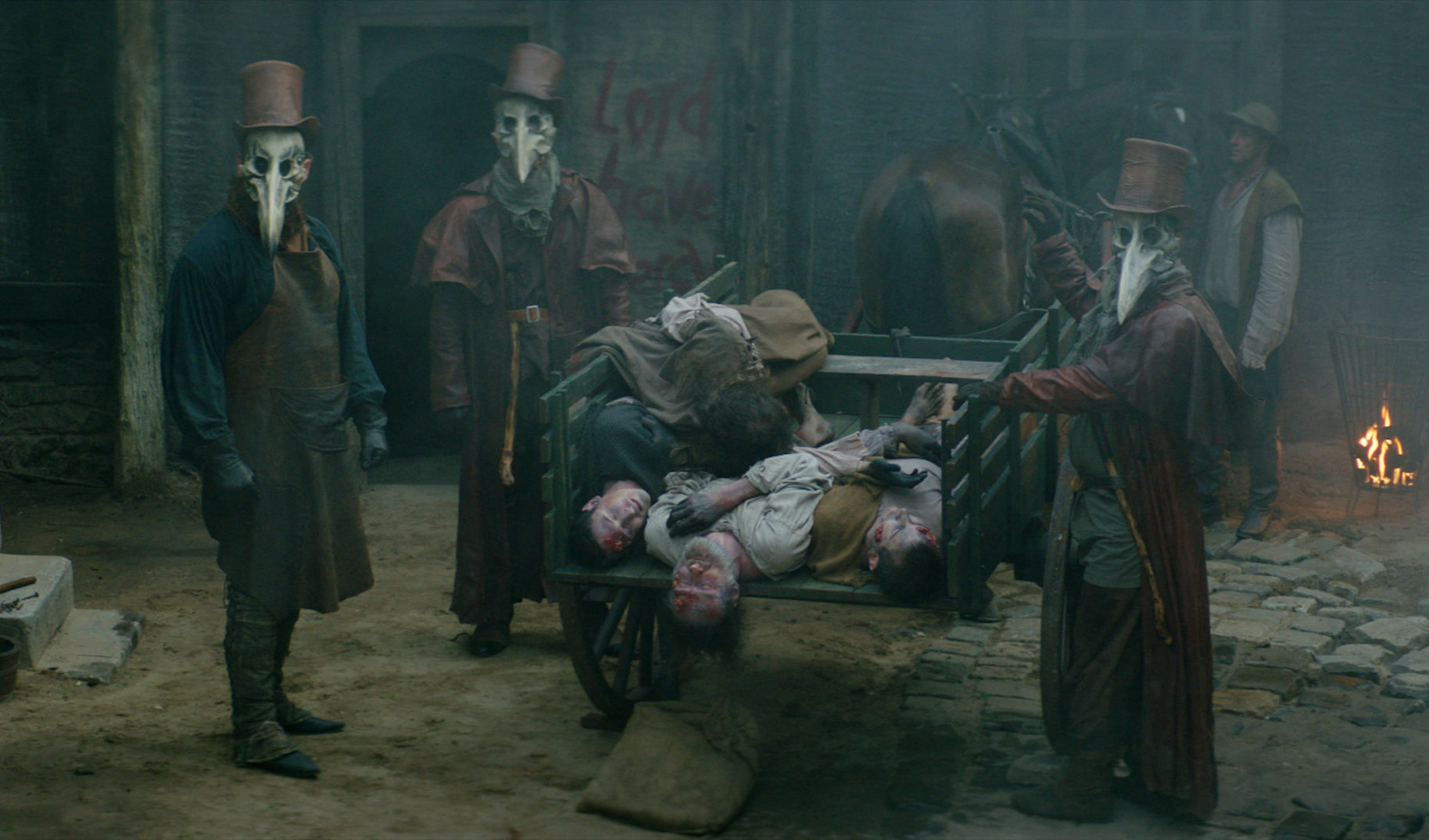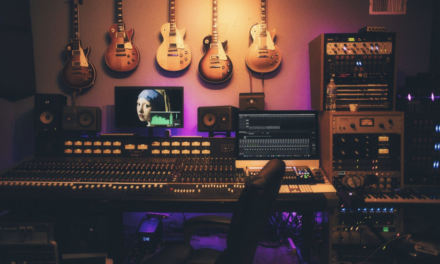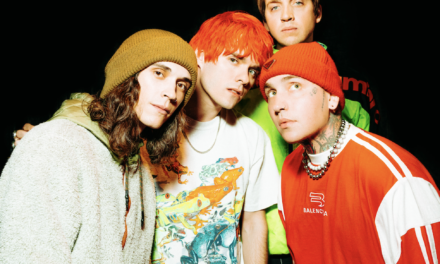Sophomore albums are difficult. Living up to the expectations of a first album is something many have trouble with, and with a fanbase that has been growing steadily for years, there’s a lot that rides on it. But none of this has phased EDEN, 24 year-old singer/songwriter/electro-ambient powerhouse from Ireland, whose sophomore offering is everything intimate, hopeless, hopeful, and melodic. Maybe it’s that he’s been sharing his extensive catalogue of music online since 2013, or writing songs since he was seven, but his latest is everything we could’ve wanted. We had the privilege of chatting with him last week, where he talks Lee Krasner, funny beginnings, and his new album, no future, out this morning via Astralwerks.
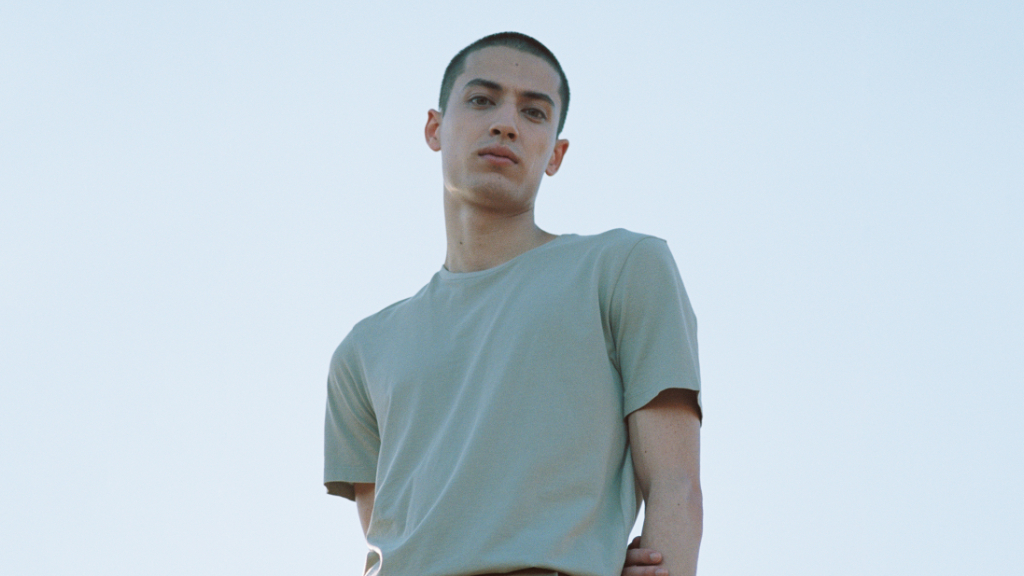
Photo: DREW ESCRIVA
When I get him on the phone, there’s an unspoken anticipation from both of us about the looming album. He’s had a busy day so far, “just working away”… on what he doesn’t specify— after all, his second full album is all but completed and ready for release— but one can only imagine it’s something for the next one, or at the very least, something to spur it along. After all, for EDEN, inspiration can hit in the most unlikely of ways— in the form of a scrapped track, a Natalie Portman interview, a karaoke version of an Eminem song— and sometimes a misdirected foray can lead to a happy accident. Such were a couple of songs on the album in question, reworked visions of previously-written songs, lyrics scrapped for new ones, melodies re-recorded in pursuit of better things.
“I feel like my favorite ideas kind of come super fast. A song like “Projector” or “???” from the new album are two songs I think I made almost entirely in a day or two. The words and everything all just came as one, all from this one source. Those are always my favorite ideas— the ones that come fast,” he says. I prod him more about his process; after all, he is doing this almost completely alone in his home studio, where I imagine it can be hard to find direction almost out of thin air. “For other songs,” he continues, “I’ll basically make a beat or make some cool sounds or nice chords and then start writing over those. Sometimes I just record some mumbling and then put words to the mumbling! My songs can come together in a lot of different ways—I don’t know if I have a particular process that turns out a song.”
And indeed, there have been many ways an EDEN song has come together. Take his first few songs, for example. His very first few songs. Like quite a few ambient-pop veterans these days, EDEN’s origin story begins right at home, in the quaint town of Dublin where he grew up. He’s been writing music since about seven, and got quite a hilarious start to it, taking an almost “obsessive” inspiration from Eminem’s near-omnipresent 2000’s beats and writing his own words over them. “I thought I was writing a song, but I was literally just taking the entire flow and putting new words on it,” he laughs. “But then my mum like heard me doing this— and I was just basically writing terrible rap music— and she bought me a notebook, and in the notebook I started to write actual songs that I’d made up. My younger siblings had been learning piano, so there’s a little electric piano in my house, and I was kind of tinkering around with it and just started writing, instead of terrible rap songs, terrible pop music. And it just evolved from there. I picked up the guitar by taking my aunt’s and uncle’s acoustic guitar home one day and not giving it back for maybe a year, and was writing songs on that. And I just kept going until I figured I didn’t need to write songs with part of a band anymore, because you could just do it all on your computer with production; you didn’t need the rest of the members of the group. So I started doing that as well. Just years of doing it over and over again for hours and hours and, now, here I am. Wow, I never thought about it— at 16. It’s been years.” 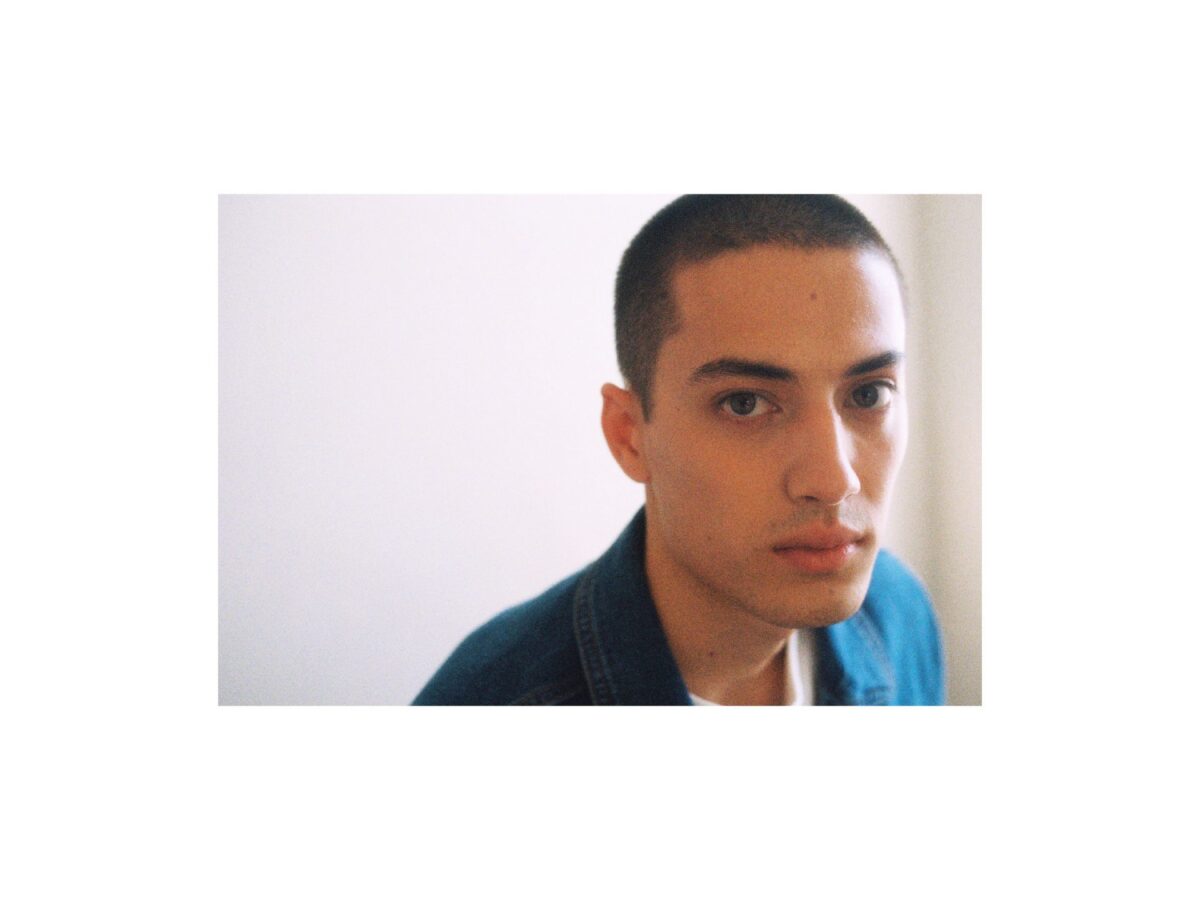 It’s been a while since then, EDEN agrees lightheartedly, and he’s certainly come a long way lyrically. His songs, now emotion-filled, vulnerable ambient beats, tug at the heartstrings in the most gentle way possible— it’s chillwave at its finest, American indie-rock at its most ambitious. Yet, despite his largely-American success, the Irish producer is so far-removed from anything you might call American, and that has proved astronomically important for his work. “The separation can really drive you to do things your own way and can give you an underdogs determination that can be invaluable,” he told EARMILK of this in 2017. “I think thats why sometimes Ireland can produce some real gems in music or film or art. It’s easy to feel like a cultural spectator or outsider. Especially when there wasn’t a scene or community around me for the music I was making.” But, with so much of his music resonating with listeners here, it was quite easy for him to make one. Come late 2013, I saw firsthand as EDEN found himself at the forefront of the second-wave “internet music scene”, the lesser-known and lesser-credited one that moved beyond Myspace, and into the communities of ambient/chillwave Youtube channels that fueled music discovery of ambient producers by slapping their audio onto beautiful backgrounds, pushing us further into the lesser-known artists we’d somehow overlooked.
It’s been a while since then, EDEN agrees lightheartedly, and he’s certainly come a long way lyrically. His songs, now emotion-filled, vulnerable ambient beats, tug at the heartstrings in the most gentle way possible— it’s chillwave at its finest, American indie-rock at its most ambitious. Yet, despite his largely-American success, the Irish producer is so far-removed from anything you might call American, and that has proved astronomically important for his work. “The separation can really drive you to do things your own way and can give you an underdogs determination that can be invaluable,” he told EARMILK of this in 2017. “I think thats why sometimes Ireland can produce some real gems in music or film or art. It’s easy to feel like a cultural spectator or outsider. Especially when there wasn’t a scene or community around me for the music I was making.” But, with so much of his music resonating with listeners here, it was quite easy for him to make one. Come late 2013, I saw firsthand as EDEN found himself at the forefront of the second-wave “internet music scene”, the lesser-known and lesser-credited one that moved beyond Myspace, and into the communities of ambient/chillwave Youtube channels that fueled music discovery of ambient producers by slapping their audio onto beautiful backgrounds, pushing us further into the lesser-known artists we’d somehow overlooked.
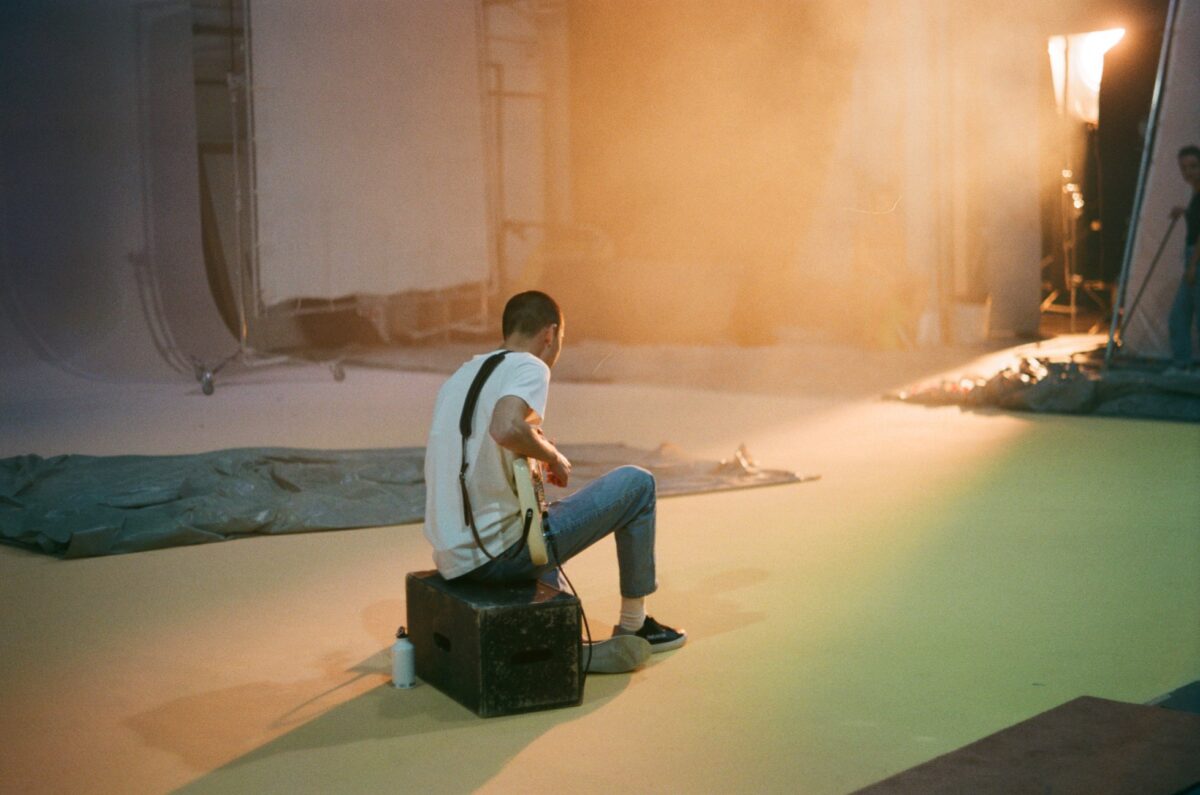
“I was just putting things online, and I don’t know how it worked out for other people, but my music was really under the radar from an industry perspective. I was just putting songs online and I just grew and grew. Sometimes I was putting a song out a week, so the fanbase just kept growing. And then when I changed my name to EDEN in 2015 and put music out, I had built a fanbase for the last three years, so I had certain songs, like XO even at the time, that had over a million plays on YouTube and all these other platforms. And so I changed my name and put some music out, and there were a couple of blogs that picked up on it, and then suddenly all these industry eyes were like, ‘Wow, this thing has fans, and we’ve never heard of it’, and that kind of kickstarted everything. I had no infrastructure around me, no manager, no agent, no anything until the very end of 2015.”
Despite the quickly growing fanbase, EDEN expected the project to remain largely online and never planned to perform live. “It was my manager that was like ‘You should do shows’. Before that, I hadn’t really thought about doing anything like that, which is weird because I’ve played in bands with my friends and we loved doing shows. But he was like, ‘You should do shows’, and I was like, ‘Okay!’ And that’s how that started. I think the first tour was in 2016. That was just a wild ride as well. The first show we did in London was for 200 people and it was free, and the second show was 300 or 400 paid tickets that sold out. And then the next show was like 2,400. Nothing really made sense. Pretty wild.
“I’ve seen a lot of musicians who have gone from not playing shows to playing shows, and some people’s music has definitely changed from being at their first shows to being at their shows now,” he says when I ask if this has altered songwriting for him. “Maybe it’s just the live versions that they make for the shows now that are catering to that, but you can feel that their music definitely has [live shows] in mind. For me, it’s not really something that sits on my mind. I like to make things purely for the moment of making it, for however I feel in that day, month, year, not deflected forward into like, ‘Oh, I like this song, but no one will dance to it live’. It doesn’t really align with how I like to create.”
His new album, no future, is a mixed bag of emotions, with a title that feels quiet a bit bleaker than the album itself. While packing a punch by touching on a few dismal subjects, but the whole album has a rather uplifting feel. “The title was something I was just feeling. It’s weird because the way I write stuff, there’s times where three months later, or a year later, I’m like, ‘Oh, that makes a lot more sense to me now than it did when I wrote it’. Writing can be quite subconscious. So the title ‘No Future’, I had from way back, maybe even before the first musical ideas were made for the album. I really thought the music was going to be quite bleak, just because of the state of the world, environmentally and geopolitically, and it’s not looking very good for humans in general. So I really thought it was going to be quite a sad, dark, mystic album. But suddenly the music just sounded like a road trip, and I was like, ‘This is really good, actually, I feel pretty great’. And I kept just going and leaning into it. So it changed from being a basis of sadness.
“Of course, however, the sentiment has always been the same: there’s no time but the present. You can’t bank on anything. You see that concept manifesting itself in a bunch of different ways. Like you seize the moment or whatever, but then you have news like last week with that really tragic helicopter crash, and people are now like ‘Cherish the people you’re around’, and in losing people, you feel that really intensely. Like there /is/ no future. A good friend of mine said in the last year, ‘Drink the good stuff,’ because you don’t know. If you’re saving it for another day, you mightn’t get there. So just enjoy it, and share that time with the people you love and the people around you. So ‘no future’— there’s kind of a bittersweetness to it. I feel like what the title really means to me for now is like: any plan you have is just an idea. A conceptualization of something that doesn’t exist and might not exist. You not might even get there at all. You might end up in a completely different direction. So it’s just, enjoy and work with what you have now. You can’t live in the future, so you should stop thinking about it so much. Plan for it, but you shouldn’t compromise yourself now in a number of ways.”
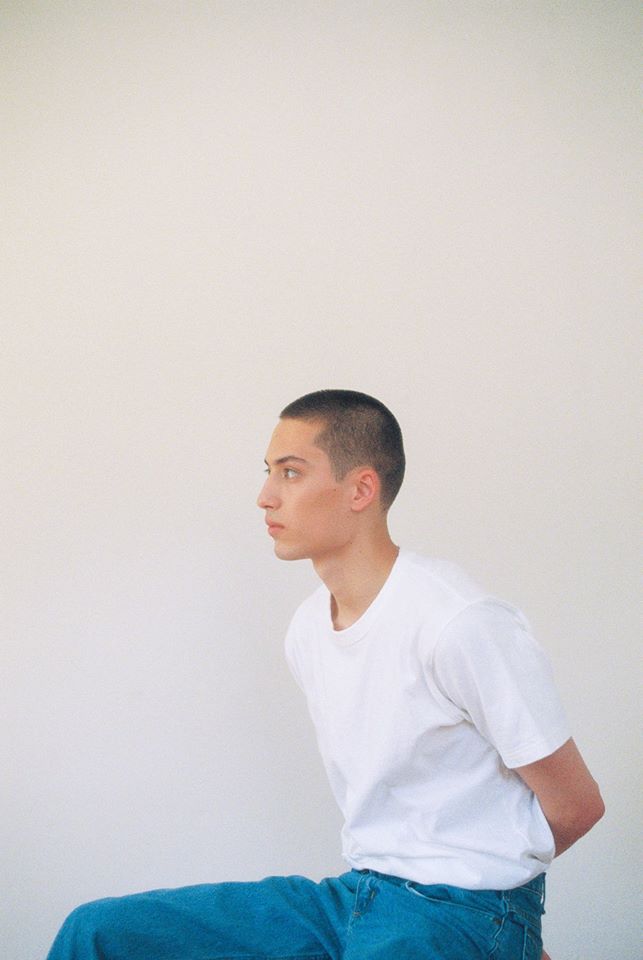
One of the real pleasures here is EDEN coming home to electronics. His growing track-record of albums and EPs have no doubt taken us on a thrilling exploration of new sonic elements and changing tastes— this he says himself— and each offering took the best components of the last and spun it into something that far transcended anything previously released, but it’s in electronics where EDEN shines the brightest. “Tracing from ‘End Credits’,”he says, taking us through his discography, “which is this massively electronic-spaced EP, then ‘i think you think too much of me’, which is kind of half-and-half, where songs like “sex” feel like a ‘band’ kind of song, but then you have “drugs” which is just hugely synthetic, and then “and” is just kind of in the middle, and “rock + roll” is a “band” again. And then ‘vertigo’ felt like real instruments. It still has electronic elements, but for the most part it felt like a lot of real instruments. There’s live drums on it, which I’d never done before— and I haven’t done since— then ‘no future’.” It moves away from the sweeping orchestrals we saw on vertigo, and even evokes a little bit of a hip-hop feel to it. “I bought this new modular synthesizer when I was on tour in 2018, and was just making beats and making atmospheres and loops and ideas from that. I was really falling in love with electronics again. So maybe that’s why it’s now this way; drum machines and synthesizers are lot more present rather than guitar chords or piano chords.”
I could use up the entire word-count here gushing about the integrity of this piece, and still not say everything I wanted. On one end, it’s a bleak, near-pleading narrative hinged on societal reflection of life and solitude with the backdrop of our inevitable end. On the other, it’s a sleepy, tender ambient adventure that’s full of as much hope and excitement for the present day as we tend to be for the future. It says a lot with a little, and packs a punch in abstract lyrics that become increasingly confessional the deeper you listen. As with any album, it’s hard for me pick a favorite, so finding one that defines the project in its current stage proves a harder task than I’d thought. “It’s really hard to pick a favorite, but at least now that I’m rehearsing for the tour and putting the whole show together, [I love] “2020”. Every time we play that it just feels so good. So, as much as I said, you know, you shouldn’t really look to the future that much, it’s kind of like this nice look to the future, and it feels like, ‘Okay, we’re going, and we’re going to figure it out. Whatever happens, just roll with it’. The energy of it all just feels so good to play right now.
“how to sleep” [also] definitely has a very special place in my heart, for a number of reasons. I started with the chords— there’s a two-note baseline and a harmony line that goes through the whole song, and I wrote that on the guitar and was like, ‘What if I get like mod synth to play this?’ So I recorded that and I was like, ‘Okay, that’s pretty cool’. And then the instrumentals just built and built off that with layers, and then writing the song, it just became suddenly like this crystal-clear prism of memories. All of the times I felt a certain way, all crystal-clear but overlapping and melting into each other. It was just really cool. Even when I listen back to it, it’s like so many threads of my life in this one little sweet song. And top it all off, Natalie Portman is talking on it at the start. That’s the voice. That was an interview I found of her years ago, and a lot of what she said really stuck out and resonated with me, and then suddenly I’m making the song and I’m like that’s exactly what I’m saying essentially. That’s exactly the idea. It just resonated so strongly, so that felt really good to put in, and the song came together quite quickly as well.”
“This [album] definitely felt like it wanted to say a lot. While it’s like a really long tracklisting compared to what I do, it’s not massively longer than ‘vertigo’ is. I think it’s like three to four minutes longer, despite being about six tracks longer. The nature and the multifacetedness of what I was trying to get out of myself needed all these different points of direction: emotion, energy, tone. It had a lot more diversity to it than ‘vertigo’, definitely. It’s a lot more circumspective rather than just a unified, straight-through idea or vision. I started making a lot of things that felt really good to /me/, but also good together as a body, and that’s how it ended up. Although it’s weird because now having made it, I’m thinking it’d be really nice to make something like hyper-concise now. Getting back to the shorter stuff. Everything kind of comes in phases.”
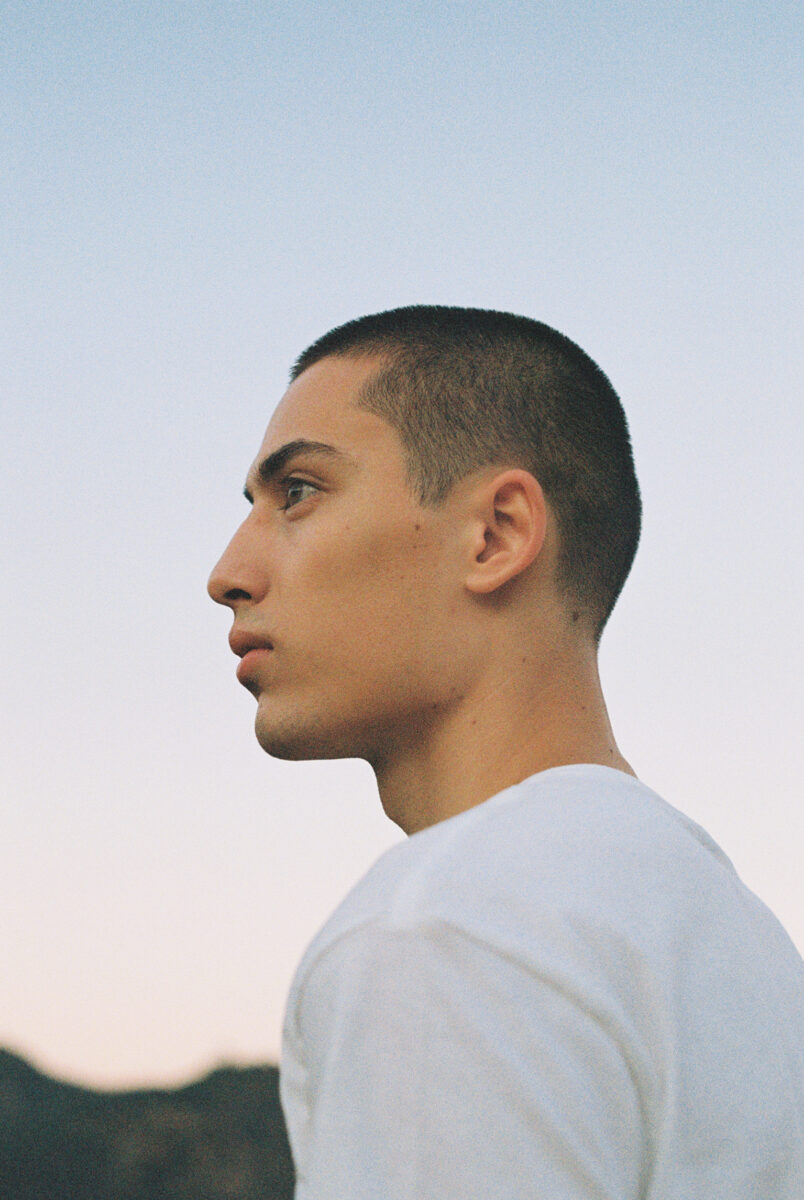
Photo: DREW ESCRIVA
Phases seem an incredibly important theme in EDEN’s creation process, and it’s evident in his portfolio, his songwriting, and his production. “just saying” went through about five different versions. There’s sections that aren’t in the song anymore that used to be in the song. That was probably the most difficult to feel complete. I think “projector” as well had to go through a bunch of revisions, because initially it was just completely soaked in reverb; it was /much/ more murky than it is now. That was a long… battle with my manager and A&R, and after a while I kind of appreciated the less-reverb-y [nature] of it, but for a long time before that I was pretty adamant that it needed to be even worse than it is now— just unintelligible, like a pool of reverb sound,” he says, laughing. “Which is great,” he adds, “but that’s not what it is anymore. Also, “hertz” used to be a completely different song. The way the drum beat in “in” is, “hertz” was based off of that drum loop, in a cleaner way, but it was just not working and not working. I think after about six months of trying to figure that out, I kind of had a Lee Krasner moment. I don’t know if you know who Lee Krasner is; she was an artist who worked for the York, and at one point went into her studio and tore up everything she was working on because she hated it, and then couldn’t work for weeks or months. Finally, she could stomach going back into the studio and saw these shredded pieces of art on the ground and was like, ‘Oh, that’s nice,” and then made ideas out of the shreds. That’s kind of what it was for me. I was like: this is not working at all. I’m just gonna— I don’t know if I can curse— but I just was like ‘Fuck this’, I’m just gonna take it completely apart. Then suddenly a beat I’ve made on my modular supervisor was like, ‘Oh wait, that works better’. Then it all reassembled in this madly different way, into a much, much better song. I think that just goes to show that sometimes things work out for a really good reason.” And sometimes, the beat really does speak to you.
“And is track 13 purposefully titled “???”?” I ask. A bit of a jump, but I’m inspired by his Lee Krasner moment— there are definitely times when it makes sense to give up and let things fall in place naturally. Such was the title, “???”. “Yeah, it’s on purpose. I think we’ve been struggling with what to call it, because in rehearsing for the tour, we’re like ‘Ok, what song are we doing next,’ and we wouldn’t be able to say it out loud, so it’s kind of just being called “no idea” now. Or— that’s kind of what it reads as in my mind when I see that. I was sitting there with the song and I was like, ‘What do I call it? I have no idea, so I should just put in a bunch of question marks’. And unfortunately, sometimes when you do make choices like that, they stick. So now it has a name that no one will ever be able to say.” We laugh.
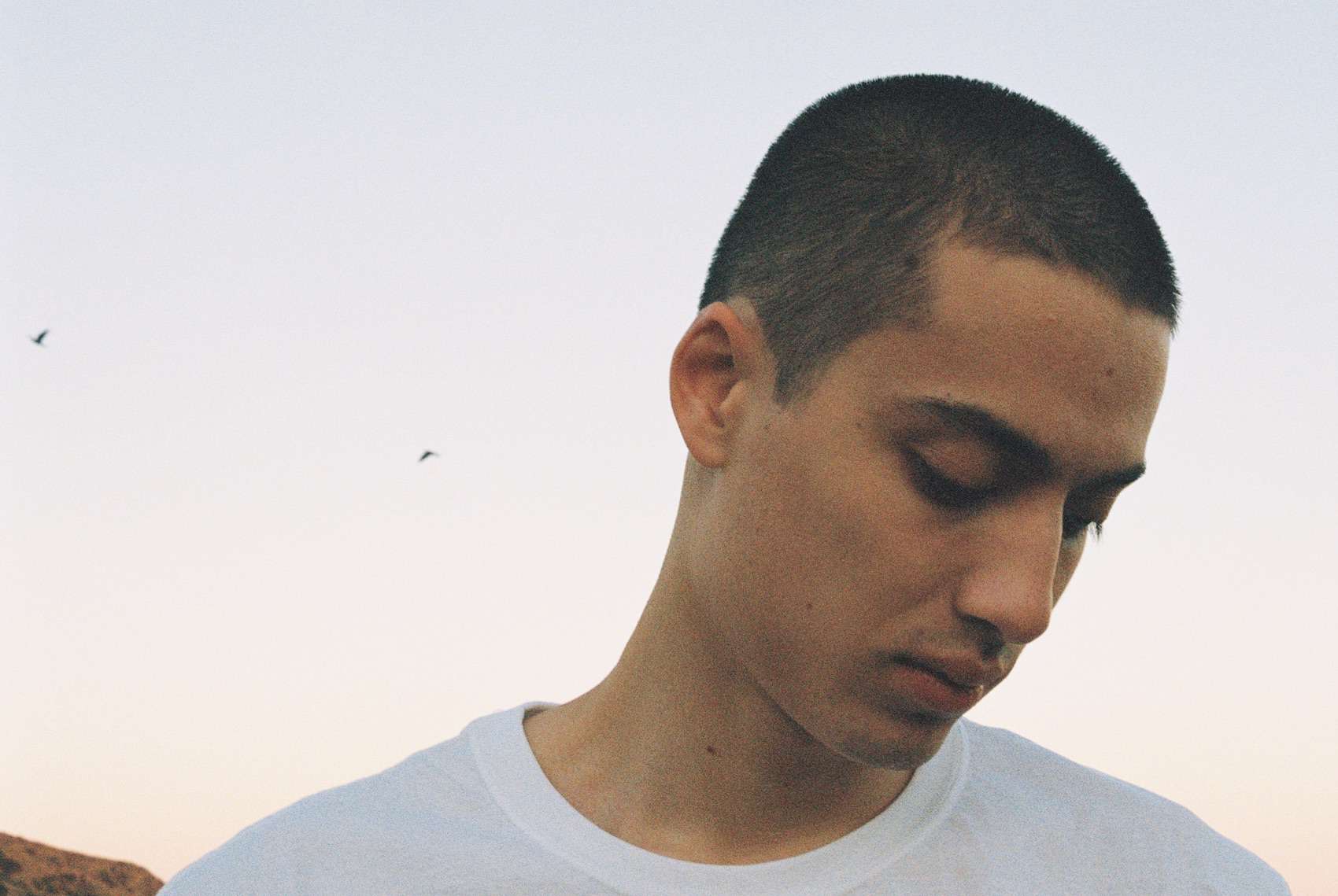
Photo: Drew Escriva
As we wrap up, I ask something I just have to know. “Did you choose Valentine’s day as release day intentionally, or was it just a coincidence?” no future is not a massively romantic album, and despite being peppered with a few love-tinged lyrics, the true, veiled elements of romance come hidden in the ??. It’s a trojan horse of sorts— a love letter to life as we know it, to learning to love the excitement of another, present day as much as we do dreaming of a theoretical, rose-colored future. EDEN echoes my sentiments.
“It kind of just happened. I mean, as you’ve heard, it’s not really a massively romantic album. We were kind of looking at possible release dates, and then it was Valentine’s Day and I was like ‘okay, we have to do that’. So it was a bit of serendipity and a bit of ‘okay, we have to’, you know?”
I did know. Sometimes things just fit.
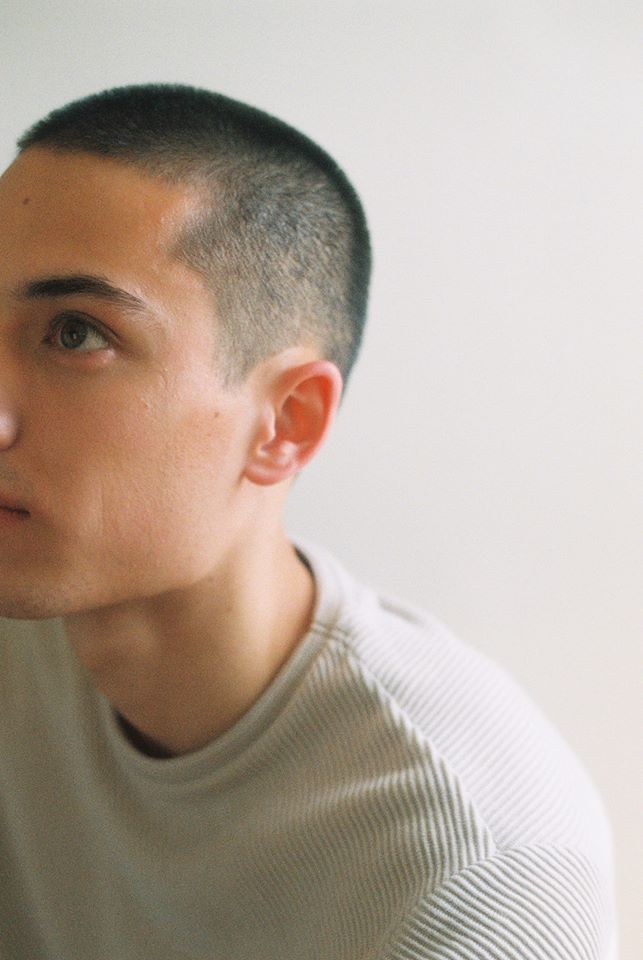
no future is out now via Astralwerks.


